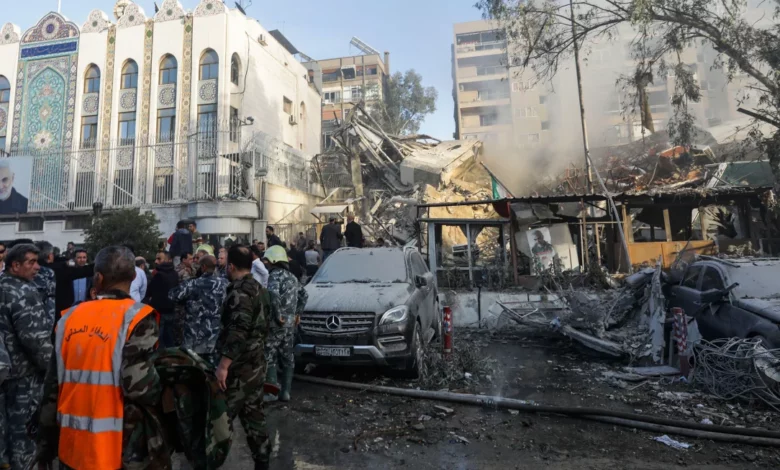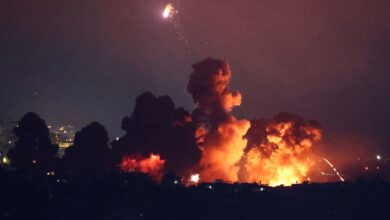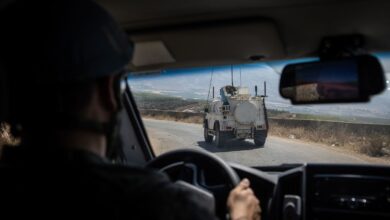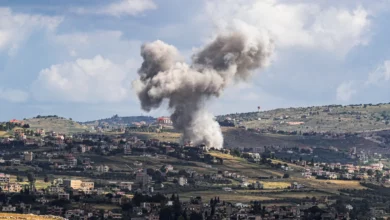
The attack on the Iranian consulate in Damascus on Monday may be the most dangerous escalation outside of Gaza since the start of the Hamas-Israel war nearly six months ago.
Syria and Iran blamed Israel for the airstrike that destroyed a consular building, killing Mohammed Reza Zahedi, a top commander in Iran’s elite Revolutionary Guards (IRGC), and several other officials, including another senior commander Mohammad Hadi Haji Rahimi. Israeli officials have not commented on the incident.
The attack is the latest in a recent string of apparent Israeli strikes in Syria that targeted the IRGC and Iran-backed Lebanese militant group Hezbollah. So far, the attacks have not provoked a response outside the scope of months-long skirmishes on Israel’s border with Lebanon — despite repeated threats by Iran and Hezbollah’s leadership to respond to Israeli attacks in kind.
Monday’s incident, however, may be the last straw. Technically, Iran’s consulate is sovereign Iranian territory, making this the most overt attack on Iranian soil in years. And Zahedi is the most high-profile target since former US President Donald Trump ordered the killing of the IRGC’s storied general Qassem Soleimani in Baghdad in January 2020.
“Events in Damascus today indicate that Israelis have (Iranian Supreme Leader) Ali Khamenei in a box,” wrote Mohammad Ali Shabani, Iran analyst and editor at the online magazine Amwaj.media, in a post on X, formerly known as Twitter.
“Iran’s supreme leader is being embarrassed before his own praetorian guard, and Quds Force will have increasingly hard time justifying Khamenei’s indecisiveness before Iran’s regional allies.”
It is difficult to envisage an Iranian response that does not involve its most powerful paramilitary ally, Hezbollah. The Lebanese Shia militant group has been embroiled in daily cross-fire with Israeli forces since October 8. For nearly six months, it has walked a fine line between trying to limit its field of militant operations to the border area, while trying to enforce tit-for-tat rules of engagement. This has become harder as Israel strikes targets much further afield than the border area with growing frequency (Israeli airstrikes hit a major city in eastern Lebanon last week).
Iran’s regional allies say they entered confrontations with Israel on behalf of Palestinians in Gaza, where over 32,000 people have been killed, according to local authorities. This has boosted their regional popularity and shored up their political positions domestically. But they have sought to avoid an all-out conflagration, a relief to Washington, which has thrown its weight into preventing a regional war.
That may be an untenable position after today’s strike, which has again brought the region to the brink of an expanded war.




